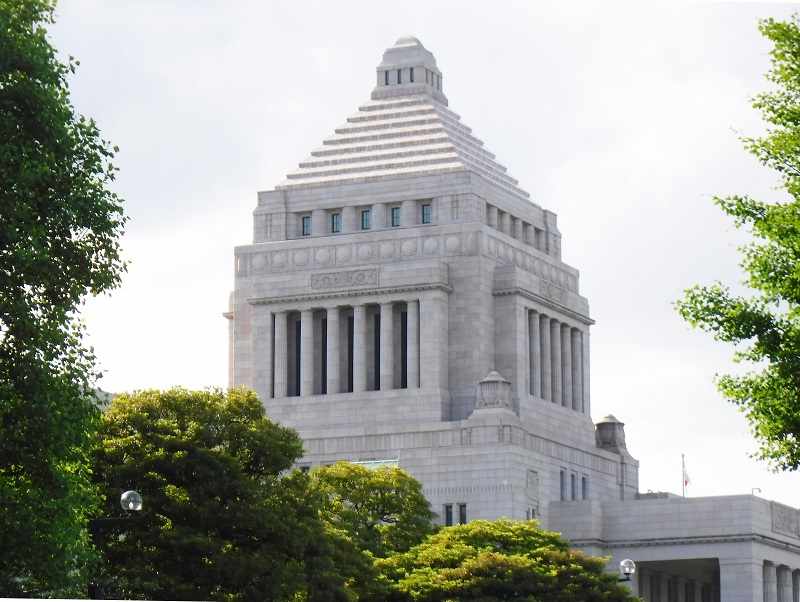
The Diet Building in Chiyoda Ward, Tokyo, Japan.
11:47 JST, December 29, 2022
Tokyo — The Japanese government said Wednesday that it will shorten the time it takes to issue an early warning under the country’s J-Alert system in the event of a ballistic missile being fired to possibly reach the country.
The move comes after the government faced criticism for delays in issuing such warnings when North Korea fired missiles in October and November.
To detect ballistic missile launches from North Korea, infrared monitoring by a U.S. early warning satellite is used first. After receiving information from the U.S. military, Japan’s Defense Ministry calculates missile trajectories using Aegis vessels and radars.
J-Alert warnings are issued by the Cabinet Secretariat to affected prefectures after it receives information including the estimated launch location and the predicted impact point.
The Cabinet Secretariat has been issuing such warnings at stages with “considerable certainty,” but will move up the timing to those with “certain probability.”
The change will be implemented manually for the time being. Related system upgrades are expected to be completed as early as next summer.
In the Oct. 4 case, the government issued a J-Alert warning five minutes after the missile firing. If the new timing had been adopted, the government would have issued it one minute earlier, informed sources said.
“Missiles from North Korea can reach Japan within 10 minutes,” a government source said. “While we should aim for both accuracy and swiftness, we decided to prioritize swiftness to secure enough time for people to evacuate.”
In line with the change, J-Alert warnings will be issued not just prefectures over which missiles are projected to fly but also their neighboring prefectures.
A J-Alert warning covering a wider range of areas, however, could have greater impact on people’s daily lives.
When North Korea fired missiles in October and November, public transportation services, including Shinkansen bullet trains, were temporarily halted to confirm safety.
The government used to issue J-Alert warnings for the country’s nine regional blocs. But after it issued such warnings in the wake of missile launches in August and September 2017, there were complaints that the coverage of the warnings was too large.
Therefore, the government started to issue J-Alert warnings for prefectures from January 2019.
Top Articles in Politics
-

Japan PM Takaichi’s Cabinet Resigns en Masse
-

Sanae Takaichi Elected Prime Minister of Japan; Keeps All Cabinet Appointees from Previous Term
-

Japan’s Govt to Submit Road Map for Growth Strategy in March, PM Takaichi to Announce in Upcoming Policy Speech
-

LDP Wins Historic Landslide Victory
-

LDP Wins Landslide Victory, Secures Single-party Majority; Ruling Coalition with JIP Poised to Secure Over 300 seats (UPDATE 1)
JN ACCESS RANKING
-

Japan PM Takaichi’s Cabinet Resigns en Masse
-

Japan Institute to Use Domestic Commercial Optical Lattice Clock to Set Japan Standard Time
-

Israeli Ambassador to Japan Speaks about Japan’s Role in the Reconstruction of Gaza
-

Man Infected with Measles Reportedly Dined at Restaurant in Tokyo Station
-

Videos Plagiarized, Reposted with False Subtitles Claiming ‘Ryukyu Belongs to China’; Anti-China False Information Also Posted in Japan





















